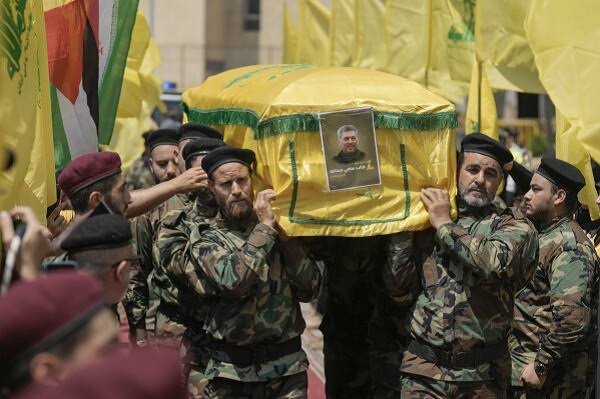Israel is continuing its efforts to restore peace on the northern border by targeting Hezbollah’s military arms and weapons in an attempt to disarm the group. However, achieving this goal may not be straightforward. Recently, Israeli airstrikes resulted in the death of a senior Hezbollah commander. According to Israel’s military, the airstrike on the Lebanese capital killed Ibrahim Qubaisi, the commander of Hezbollah’s missiles and rocket force. Two security sources in Lebanon described him as a leading figure in the Iran-backed group’s rocket division.
Rising Tensions and Potential Consequences
The recent developments raise concerns about the possibility of escalating tensions leading to a full-blown regional war against Israel. This attack has dealt another significant blow to Hezbollah and its Iranian backers, potentially triggering a broader conflict. The pressure Israel is exerting on Hezbollah raises fears of a larger war, especially amidst the ongoing unrest in Gaza. The critical question remains: can Israel afford to engage a more formidable enemy while already involved in the Gaza conflict?

Prime Minister Netanyahu’s Stance
Prime Minister Benjamin Netanyahu stated that Israel would continue to strike Hezbollah targets and urged Lebanese citizens to distance themselves from Hezbollah leader Hassan Nasrallah.
“Anyone who has a missile in their living room and a rocket in their garage will not have a home,” Netanyahu declared at an undisclosed army base after the military reported finding ammunition in civilian homes. He emphasized that Israel’s war is not against the Lebanese people but against Hezbollah, warning that Nasrallah is leading them toward disaster.
Israel has accused Hezbollah of concealing weapons within civilian areas, a claim the Lebanese group denies.
Calls for Diplomacy
Amidst the escalating conflict, calls for diplomacy are growing. UN human rights chief Volker Turk has urged all states and influential actors to take steps to prevent further escalation in Lebanon. White House national security adviser Jake Sullivan expressed optimism about finding a path forward for de-escalation and diplomatic resolution. British Prime Minister Keir Starmer also called for “all parties to step back from the brink.”
Conclusion
Despite the calls for restraint and diplomacy, Netanyahu has a history of pursuing his goals regardless of criticism, especially with the threat of a regional war looming. As tensions rise, the situation remains precarious. Once Israel faces retaliation, the consequences for its citizens will be significant. For now, the world watches closely as the conflict unfolds.

















